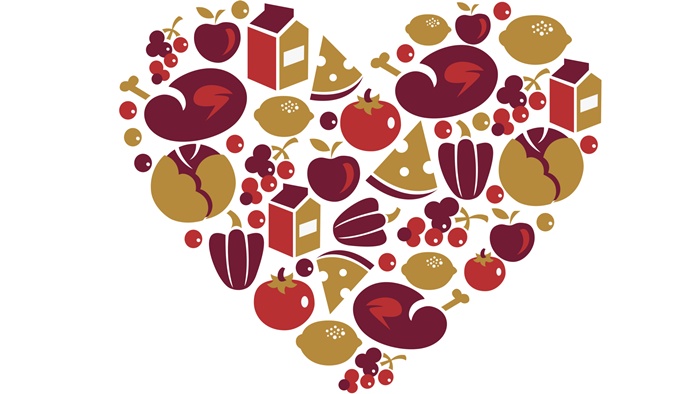
While prescription drugs seem like an easy fix for heart trouble, this two-part series looks at an easy alternative fix to safeguard you against heart disease—diet. Here, part two discusses why a plant-based diet recommended by some experts is not the best therapy for your cardiovascular system.
Food Power: Eat to Beat Heart Disease (part one)
Diet plays a major role in protecting our hearts, along with the rest of our body. And now the Western world is paying far more attention to specific foods in relation to disease prevention and overall health—which also means there are plenty of “expert” opinions on the subject.
New research points to food choices as an alternative to prescription medication for cholesterol levels. The first part of this series helped to explain the effects of a plant-based diet on cholesterol levels and the risk of heart disease. Two successful North American doctors suggest that patients should consider a vegan diet over traditional statin drug therapy to control cholesterol levels. This is a controversial line of thinking considering medication is often the one and only method many doctors prescribe to control the risk.
But I think there could be a better and easier way to treatment with food choices, without going vegan. Here’s why.
Approximately 10% of the cholesterol in your blood is derived from food. The rest is made in the liver. Statin drugs are effective because they can drastically lower LDL (low-density lipoprotein) by influencing metabolism. LDL is better known as the bad kind of cholesterol.
Most people experience a modest decrease in LDL cholesterol only by changing to a vegan diet. That’s one point for a shift in diet being the better option to medication! Vegan diets are effective because they are low in calories. Obesity can be a determining factor in your chances of getting heart disease, so calorie intake becomes important.
However, vegan diets are low in vitamin B12 and zinc. These two nutrients are essential in keeping the blood levels of homocysteine low. Keeping these levels low helps to prevent heart disease and stroke.
LDL cholesterol (lowered with a vegan diet) is not the cause of heart disease! So medication to keep it in check is pointless. What does lead to heart disease is high levels of blood sugar, insulin, low HDL levels and inflammation associated with insulin resistance.
Research that looks at populations who consume a plant-based diet can be skewed. Good health from their diet is not necessarily because animal products have been excluded. It may have more to do with the omission of nutrient-poor foods like sugar, white flour, refined oils, fried foods, transfats, sweeteners, soda and alcohol, all often included in the North American diet.
Other country populations, like China and Africa, tend to be non-smokers, more physically active and have fewer genetic risk factors for heart disease. This certainly gives them an obvious advantage.
Most people who suffer from heart disease do so because they eat too much of the wrong foods and they get no exercise. They develop insulin resistance, put on body fat and their levels of internal inflammation are greatly increased.
Incidentally, although vegans do not eat animal products, they also are prone to some other health challenges. Vegans need to pay special attention to supplementation of protein and vitamins.
I have seen vegans consume far too much sugar and also be overweight or obese despite their reluctance to eat animal products. Balance is key when it comes to sticking to a strict diet like veganism.
There is no one diet that can be the total answer to this complex question. However, I do not believe that you should avoid animal foods and plant-based oils. Restriction perhaps, but don’t eliminate a big food group without discussing it with your doctor!
In my opinion, after considering all of the facts, research and evidence from these two doctors, the Mediterranean diet, full of fish, vegetables and healthy fats, still stands alone in its ability to reduce the risk of experiencing heart disease. It follows the balance you need to stay healthy and live a lot longer, too.
Consider this diet and take steps (on your dinner plate and off the couch) to reduce your risk of heart disease.
Sources:
Ros, E., et al., “Mediterranean Diet and Cardiovascular Health: Teachings of the PREDIMED Study,” Adv Nutr. May 14, 2014; 5(3): 330S–6S.












